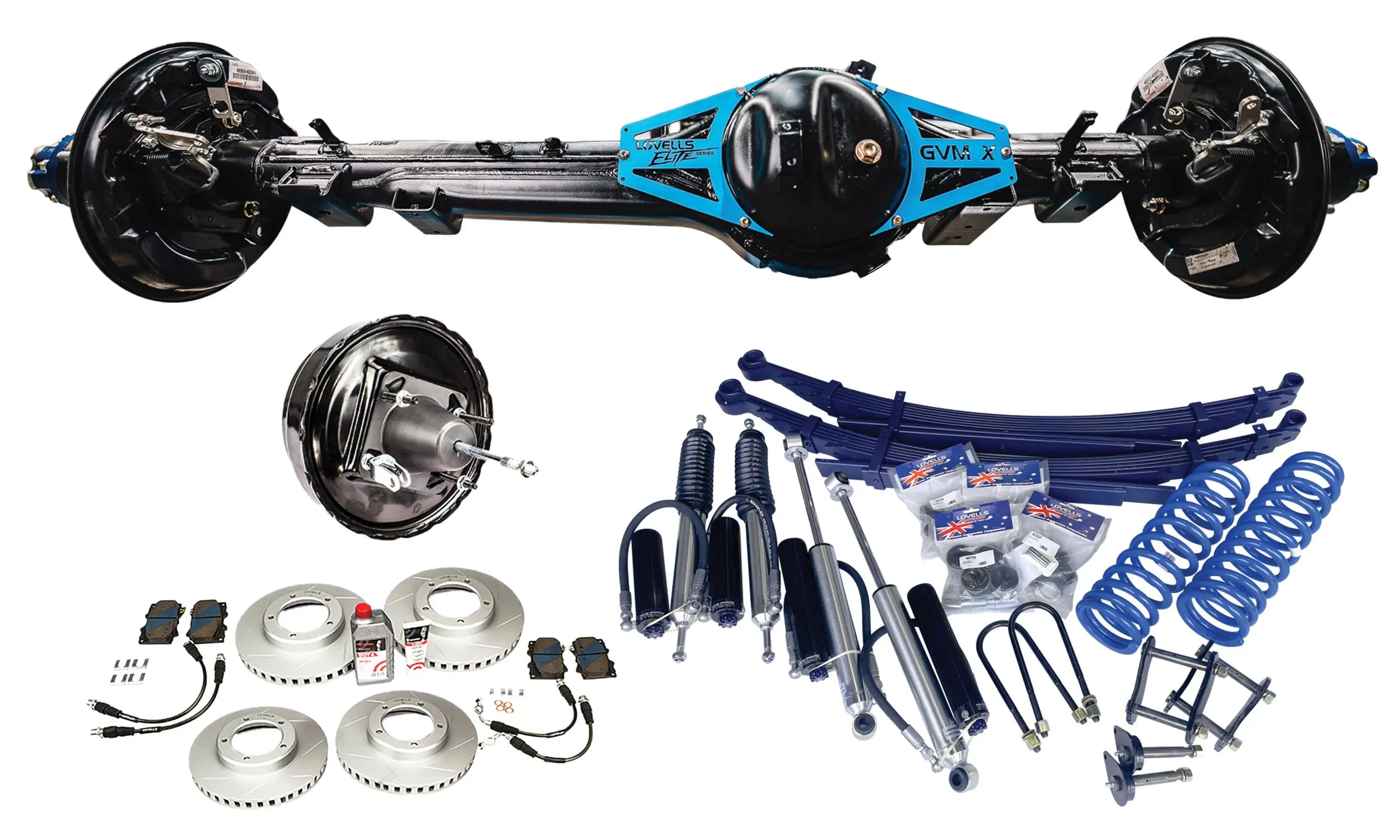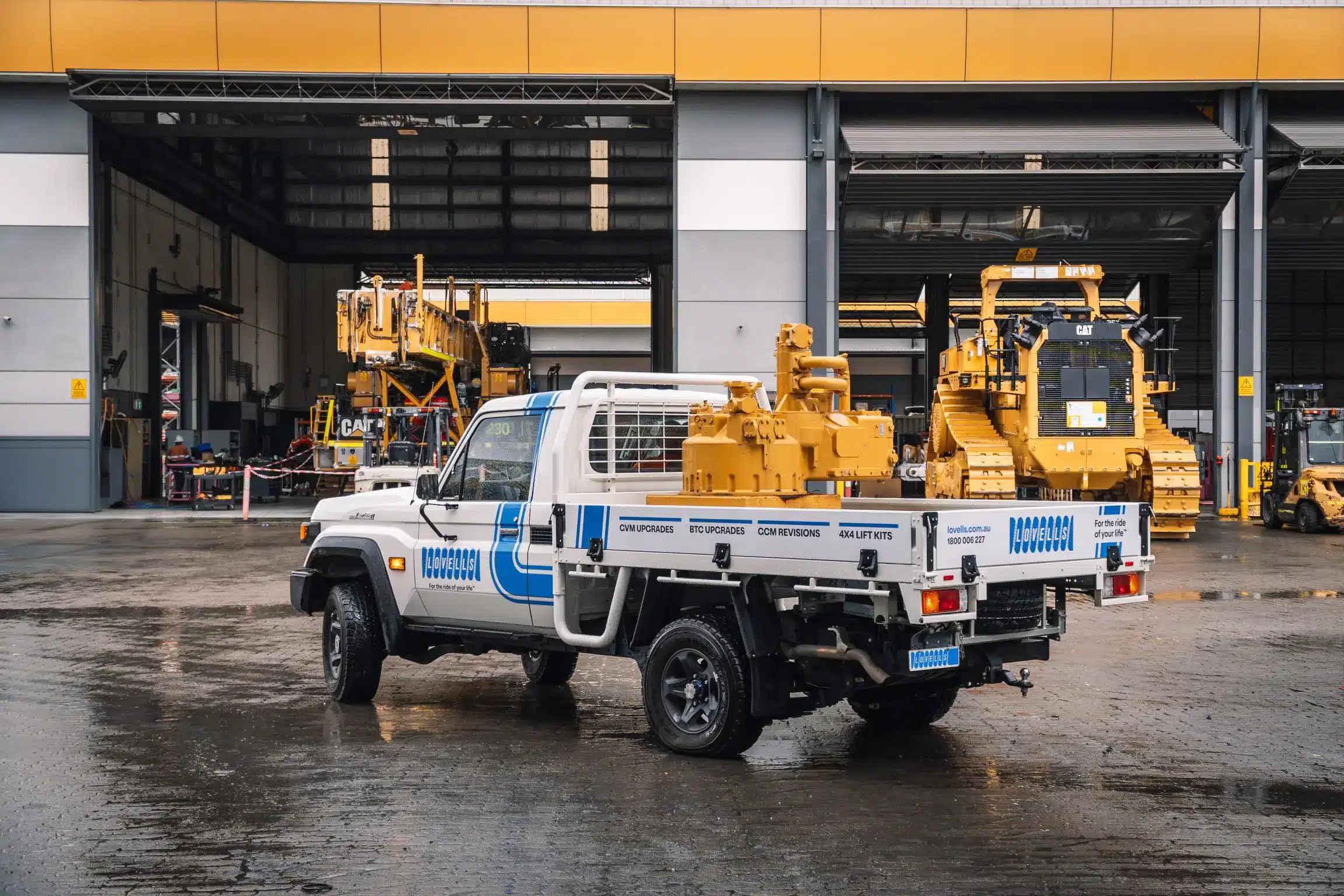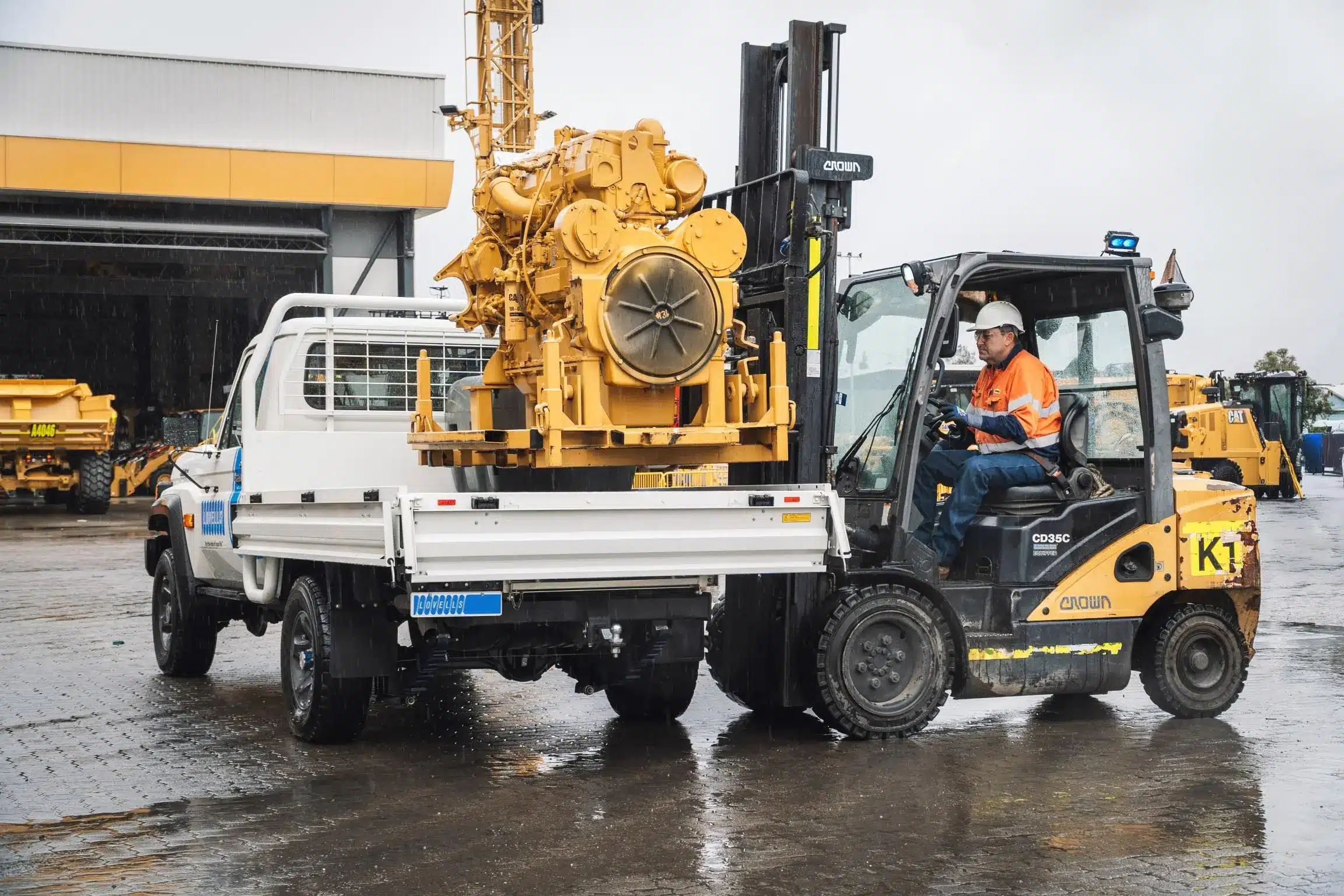Lovells Elite Series 79 Series GVM upgrade launches with re-engineered axle
Lovells launches Elite Series 4495kg GVM upgrade for 79 Series Single Cab with re-engineered axle and corrected track width.
Published on: 17 October 2025
Advertisement
Lovells has launched its Elite Series GVM upgrade for the 79 Series Single Cab, and the headline isn’t just the 4495kg rating. The Newcastle-based group has widened the rear track to fix one of the 79’s most irritating quirks, and they’re now making axles in-house rather than modifying Toyota’s.
The 79 Series GVM upgrade pushes the old workhorse to 4495kg GVM with a 7400kg GCM, but it’s how they’ve done it that’s actually interesting.
If you’ve driven a 79 Series, you know the rear track is narrower than the front. It’s not a huge difference, but it’s enough to be annoying on corrugations and downright frustrating when you’re trying to stay in someone else’s ruts. The rear wheels track inside the front, so you’re constantly fighting the steering.
Lovells has re-engineered the rear axle housing to widen the track and match the front. That’s a bigger job than it sounds. They’ve strengthened the axle housing, upgraded to larger bearings, and designed new two-piece full-float axle shafts using Cr-Mo steel. The shafts have a non-destructive fracture design, which means if something goes horribly wrong, the shaft breaks in a way that protects the diff and bearings rather than taking everything with it.

The rear axle is now rated to 2850kg, and you get a Lovells remanufactured exchange diff rather than modifying your existing one. That makes installation quicker and means Lovells can control the quality rather than dealing with whatever state your old diff is in.
Lovells says they put the axle housing through 10,000 stress cycles with peak loads over five tonnes per cycle. That’s the kind of testing that should be standard but often isn’t. The axle came through without failures, which is good because if it was going to break, you’d want it to happen in the lab rather than on the Canning Stock Route.
For anyone running serious payload or planning to use the full GVM rating regularly, proper testing validation matters. It’s easy to engineer something that meets minimum certification requirements but falls apart under sustained hard use. The testing regime suggests Lovells has gone beyond just ticking boxes, though the real test will be how these hold up in the field over the next few years.
Lovells offers three packages depending on which 79 Series variant you’ve got. The differences aren’t just marketing fluff, they actually matter.
The LC79 Cab Chassis (January 2017 to August 2022) gets the full kit: heavy-duty suspension, re-engineered axle, and front and rear brake upgrades including brake booster. Price is $19,975 fitted, excluding compliance.
The LC79 J7 V8 (September 2022 onwards) gets suspension and axle but no brake upgrade, presumably because Toyota already fitted better brakes to the V8. That’s $18,875 fitted.
The LC79 J7 2.8L (September 2022 onwards) gets the same treatment as the older cab chassis: suspension, axle, and brake upgrades for $19,975 fitted.

Those prices exclude compliance costs, which vary by state. That’s not a small amount of money, but if you’re running a trade ute or commercial vehicle that’s constantly near legal limits, the alternative is either running overweight (and hoping you don’t get pulled over or have an accident) or buying a bigger, more expensive truck.
The practical benefit is straightforward: you can legally carry more stuff. The 4495kg GVM with 7400kg GCM means you’ve still got over 3000kg of towing capacity while running loaded, which is important if you’re towing a trailer or caravan.
For commercial operators, mine sites, or anyone who needs to carry serious gear for extended trips, this upgrade means you can actually fit everything you need without either leaving stuff behind or running illegal. The widened rear track is a genuine handling improvement, especially when you’re loaded up and hitting corrugations or trying to follow existing tracks.

The exchange diff program makes sense for fleet operators. Rather than waiting while your diff is modified and hoping it comes back right, you get a pre-built unit that Lovells has already set up properly. Less downtime, more consistency across multiple vehicles.
Every Lovells upgrade is tested and certified for federal pre-registration and state post-registration requirements. That’s important because without proper engineering certification, you can’t legally register the vehicle, and your insurance might refuse to pay out if something goes wrong.
Understanding GVM upgrade requirements for your state is critical. The process varies between states and territories, so you need to check what’s required where you’re registering the vehicle. Lovells has a national network to handle this, but it’s worth verifying the specific requirements before you commit.
This release represents Lovells bringing axle manufacturing in-house at their Newcastle facility. For the Australian 4X4 industry, that’s worth noting. Having local manufacturing capacity for critical components like axles means better supply chain resilience and local engineering expertise.
The 79 Series isn’t going anywhere despite Toyota discontinuing the V8 variant. Commercial and fleet operators still need tough, simple, fixable vehicles for remote work, and the 79 ticks those boxes. The platform’s durability and parts availability make it a solid choice for purpose-built commercial applications, and the demand for payload upgrades shows no signs of slowing.
Lovells CEO Simon Crane called the Elite Series “a major milestone” for the company. For a mob that’s been making suspension since 1930, bringing axle production in-house is a significant investment in local capability. Whether that translates to better products and support remains to be seen, but it’s a positive sign for Australian manufacturing.
The Elite Series 79 Series GVM upgrade addresses a real need for 79 operators who are constantly running near payload limits. The widened rear track fixes a long-standing annoyance, and the comprehensive engineering approach suggests Lovells has targeted durability rather than just meeting minimum certification requirements.
At $18,875 to $19,975 fitted (plus compliance), this is a professional-grade solution priced accordingly. For fleet managers and commercial operators, the certified solution with local support and comprehensive warranties makes sense. For recreational users occasionally running heavy, you’ll need to weigh the cost against how often you actually need the extra capacity.
The testing regime and engineering certification suggest Lovells has done the work properly. Like any new product, the real validation will come from operators using these upgrades hard over the next few years. But based on what Lovells has released, they’ve approached this as a proper engineering solution rather than a quick way to boost GVM ratings.
More information is available through Lovells’ national dealer network or at lovells.com.au.